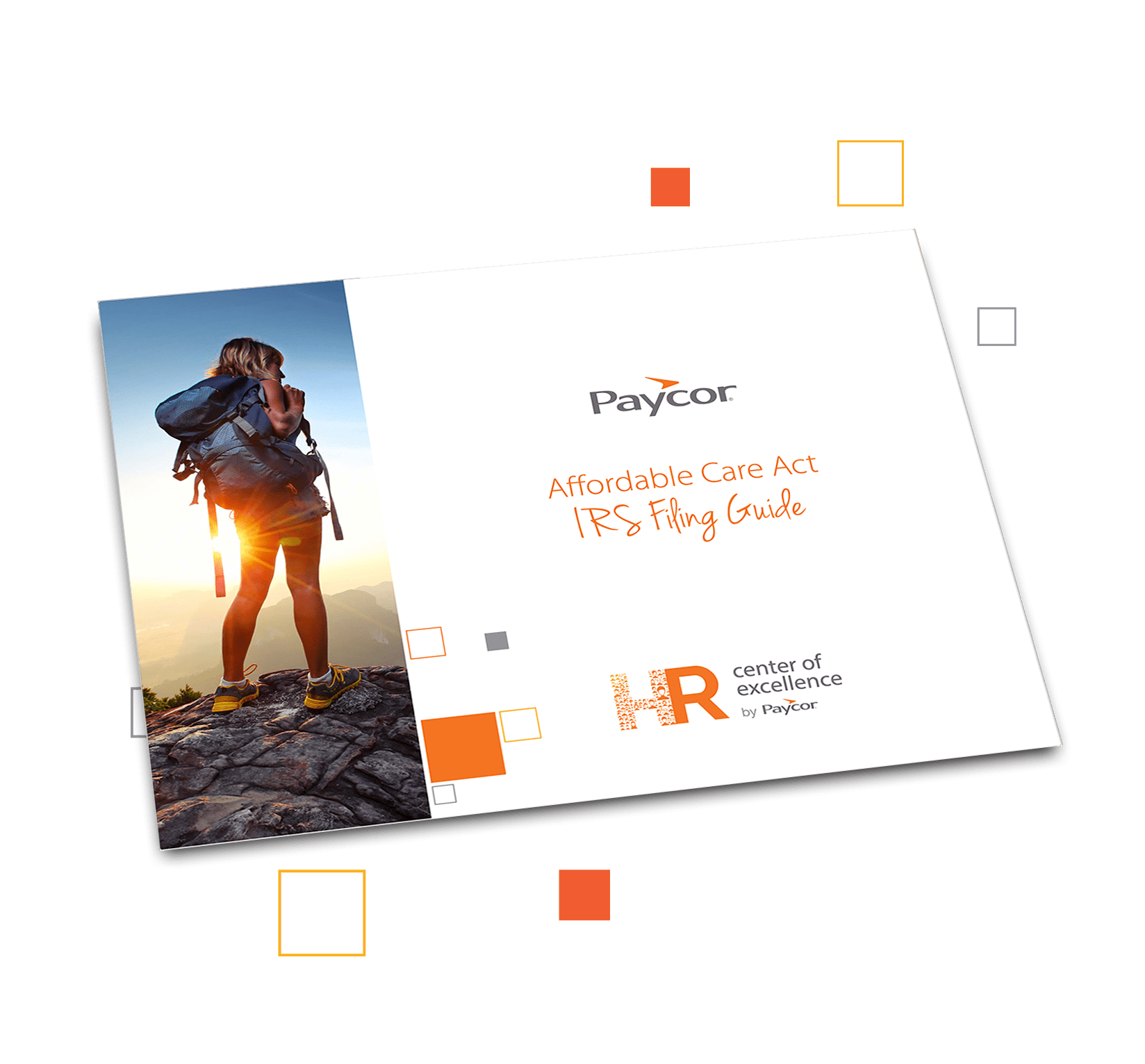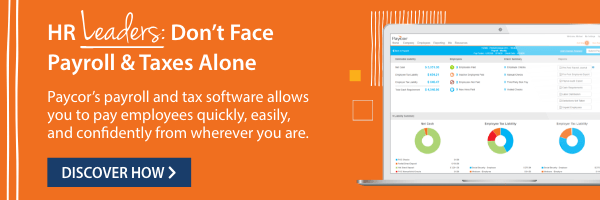Staying compliant with payroll laws requires your full attention. Not only do you have to monitor the local, state, and federal HR compliance guidelines for changes and updates, you must also stay on top of complex regulations and tax laws to help ensure your systems are updated for each payroll run. Do you know where your organization stands? To help you identify any gaps, we’ve put together a quick list of questions to consider related to payroll compliance.
Tax Compliance
Questions to consider:
- Are your employees’ tax IDs available in your payroll system for tax authorities?
- Are your employees’ valid Social Security Numbers correctly entered in your payroll system?
- Have your employees entered correct addresses for their W-2s?
- Are your State Unemployment Insurance rates up to date?
- Does your payroll provider quantify State Unemployment to ensure you are controlling costs?
Immigration Reform and Control Act
This Act requires that employers verify the identity and employment eligibility of anyone hired to confirm that all new employees may legally work in the U.S. via completion of the Employment Eligibility Verification Form I-9.
Questions to consider:
- Did you know that employers must complete Form I-9 for every new employee?
- Did you know that employees must sign a completed Section 1 of Form I-9 no later than their first day of employment?
- Did you know that employers are required to sign a completed Section 2 of Form I-9 within three business days of a new hire’s first day of employment?
- Did you know that employees who work remotely are exempt from signing Form I-9 in person? Employees who report to a physical location are still required to sign in person.
- Are you using the updated Form I-9?
Fair Labor Standards Act (FLSA)
The FLSA is a federal law that establishes minimum wage, overtime pay eligibility, recordkeeping, and child labor standards. The law applies to full-time and part-time workers in the private sector and in federal, state, and local governments.
Questions to consider:
- Do you pay non-exempt employees for hours worked over 40 in a work week?
- Do you review employee classifications yearly?
- Do you update the following documents each year?
- Employee handbook
- Job descriptions
- Company policies
- Where do you turn for HR information to update your policies and handbook?
- Lawyer
- Internet
- HR provider
- Other
- Do you use a time solution to record all hours worked?
- Are you retaining employee timecards and timesheets for at least two years?
- Are you retaining payroll records for at least three years?
Compliance Regulation Overview
The Affordable Care Act (ACA) requires employers with 50 or more full-time equivalent employees to offer minimal essential health coverage at an affordable rate to all full-time employees (30+ hours) or face a penalty.
Questions to consider:
- Do you have at least 50 full-time and/or full-time equivalent employees?
- Are your health benefit plans considered affordable for your employees?
- Do you know which of your employees are considered full-time and eligible for health care coverage?
- Have you sent a 1095-C form to your employees?
- Have you filed 1094-C and 1095-C forms with the IRS?
- Employers must file by February 28 (or electronically by March 31).
- For 250+ employees, electronic filing is required.

Download the Affordable Care Act Filing Guide
Get the help you need to manage your ACA IRS filing process.
Equal Employment Opportunity Commission (EEOC)
The EEOC requires private employers with 100 or more employees and federal contractors with 50 or more employees to submit data for a specific pay period including the number of employees by race and sex as part of the EEO-1 Report.
Questions to consider:
- Are you required to complete the EEO-1 Report?
- Applies to employers with 100+ employees and federal contractors with 50+ employees.
- Are you using an automated time solution to accurately track employee hours?
- Do you have one platform to easily access HR, payroll, and time data required for the EEO-1 Report?
- Are you prepared to track earnings and hours worked for each of your employees to include in the EEO-1 Report?
- Are you prepared to file the EEO-1 Report on time?
- Are your HR records up to date?
- Are you tracking performance reviews, coaching, and disciplinary files to explain pay differences within your workforce?
- Are you using an applicant tracking system to maintain hire/offer logs and reasons for non-selection to protect your company in case of an EEOC audit?
How Paycor Helps
Paycor is the trusted compliance partner for more than 30,000 organizations nationwide. Our payroll processing and tax filing software reduces errors and helps mitigate risk with federal and state regulations. From accurate HR, payroll, and time solutions to expert support, Paycor helps you see around corners, so you don’t fall victim to compliance regulations or government audits.
- Paycor payroll processing and tax filing reduces errors and helps you stay ahead of federal and state regulations.
- Paycor HR enables employers to easily manage employees by tracking and storing critical documentation like performance reviews, discipline and incident reports, training, and certifications.
- Paycor’s HR Support Center offers guides and templates every organization needs to manage HR, such as employee handbooks, company policies, job descriptions, federal and state law alerts, and checklists.
- Paycor’s Onboarding solution streamlines your hiring process and helps your employees electronically complete Form I-9 prior to their first day. The employee’s I-9 is electronically stored within their profile and easy to access, meaning recordkeeping is simple for you.
- Paycor Time & Attendance offers visibility into employee hours, so your organization can classify jobs properly, control labor expenses, and determine responsibility for providing health benefits.
- ACA Connect provides the reports and filing services you need to comply with the Affordable Care Act.
- Our Tax Compliance Dashboard provides proactive alerts to help with proper tax setup. When Paycor customers log in to the platform, they’ll be notified of tax errors that need attention, including missing or invalid addresses, tax IDs, access codes, or authorizations.
Take a guided tour today to learn more.
This information is not intended to serve as legal advice, only as information your organization should consider when reviewing compliance regulations. We recommend that you consult with an attorney to discuss specific compliance questions that may affect your organization.










